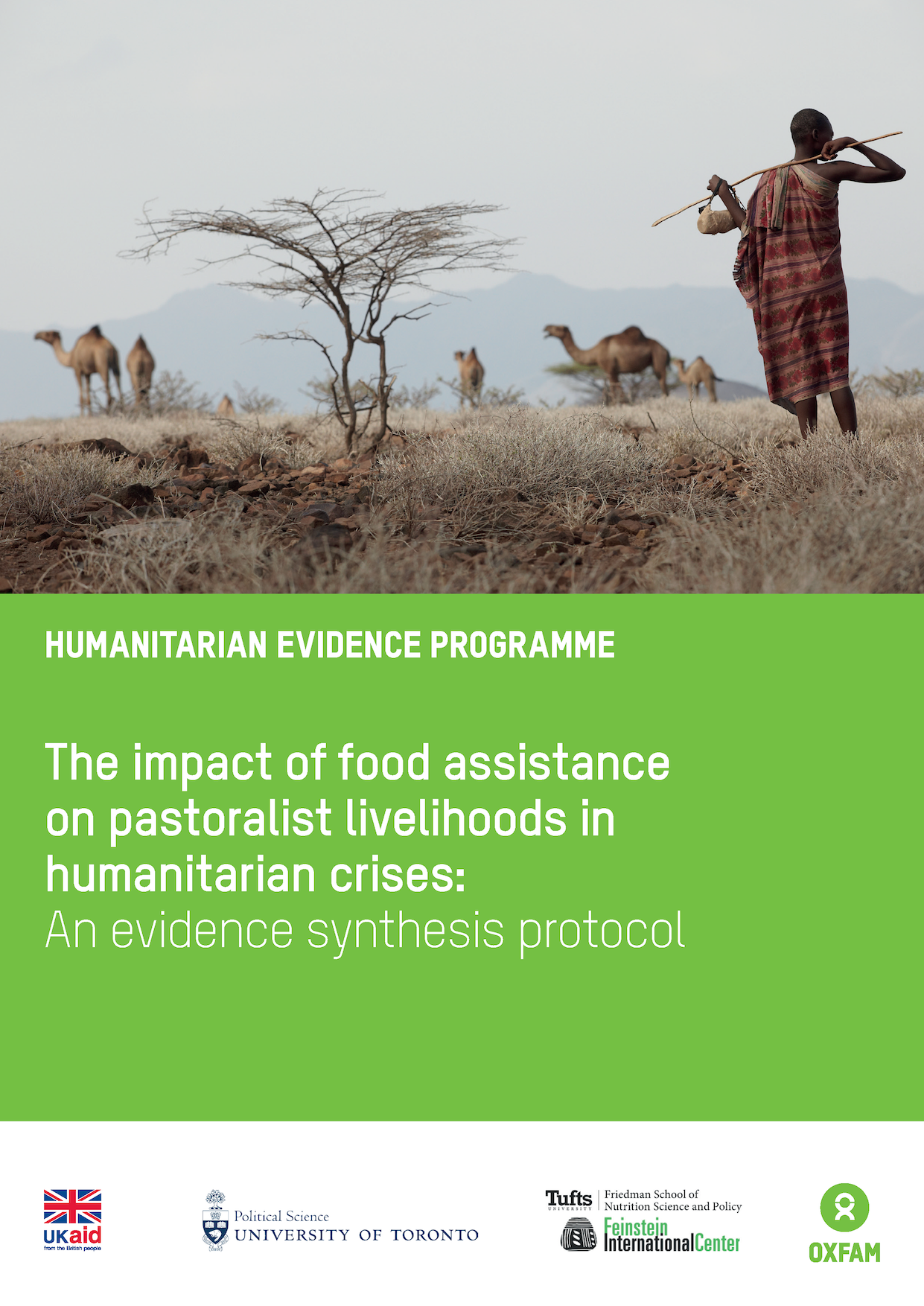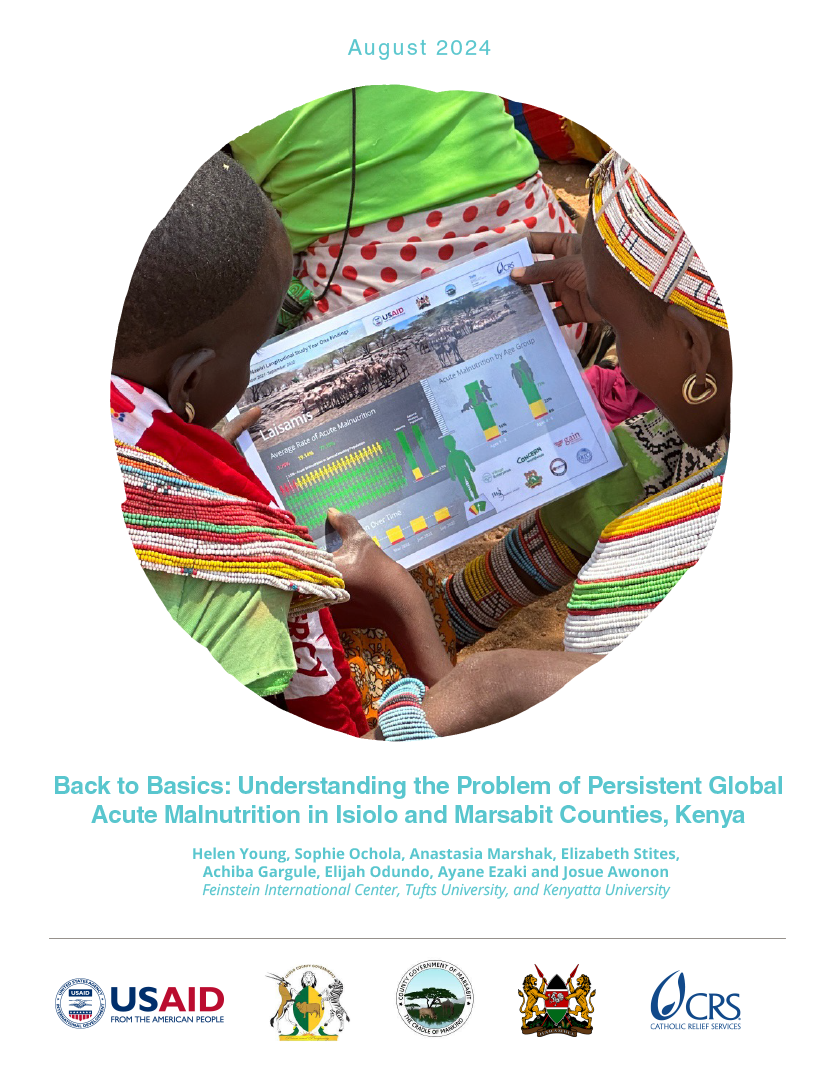This protocol outlines plans for conducting an evidence synthesis on the impact of food aid on pastoralist livelihoods. The distinctiveness of pastoralists – including factors related to the erosion of their livelihood strategies and the difficulty posed by identification of frequently mobile households – and their particular vulnerability to humanitarian crises suggest that the effects of humanitarian interventions targeting them are likely to differ from other populations. The purpose of this review is to use evidence synthesis methods to: systematically identify all available evidence on the impact of food assistance to pastoralist livelihoods (during and after) a humanitarian crisis; compare and contrast the effects of assistance delivered (by population, assistance type etc.); qualitatively and (if possible) quantitatively synthesize identified data and concepts; assess the quality of evidence, as appropriate; and identify gaps in the current evidence-base and further comment on future research needs in this space. To the review team’s knowledge, this will be the first evidence synthesis that specifically addresses the impacts of food assistance provided in the context of humanitarian interventions on pastoralists’ livelihoods. This review is commissioned under the Humanitarian Evidence Program, a UK Aid-funded partnership between Oxfam and Feinstein International Center that aims to improve humanitarian policy and practice.
The Impact of Food Assistance on Pastoralist Livelihoods in Humanitarian Crises: An evidence synthesis protocol

ASSOCIATED PROJECT
SUBJECTS
PUBLICATION TYPE
LOCATION

RELATED PUBLICATIONS
This report outlines an anticipatory insurance product designed to support farmers in the drought-prone regions of Malawi and Zambia.
•
This report presents the final findings from the USAID Nawiri longitudinal study, which investigated the drivers of the persistently high rates of acute malnutrition from September 2021 to September 2023.
•






